
Why You Can’t Get Your Needs Met By Setting Boundaries
Most people don’t understand this one thing when they try to set boundaries. But getting good at this can improve both how you get your needs met, and your relationships.

Most people don’t understand this one thing when they try to set boundaries. But getting good at this can improve both how you get your needs met, and your relationships.

Autistic people-pleasing includes plenty of downsides, but have you thought of the positives that it prevents?
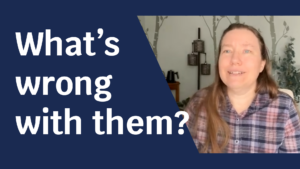
When you have relationship troubles, it’s so easy to default to asking “what’s wrong with me?” Instead, sometimes it’s worth asking, “what’s wrong with them?”
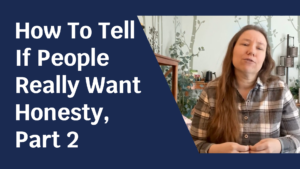
When people tell you they want the truth, but then get mad or defensive or say it’s fine but things are weird between you later, here’s what I think is really going on.
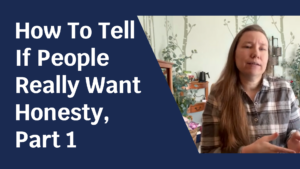
How do you tell if people really want honesty or not? Here are a few tips, and some relief for when you get it wrong.
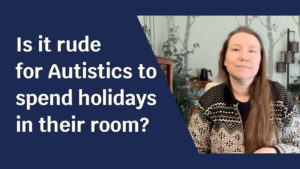
Is it rude for Autistics to spend holiday gatherings in their room, or opt out, instead of with the family? Is it promoting bad behavior? And how do you explain it to family members?
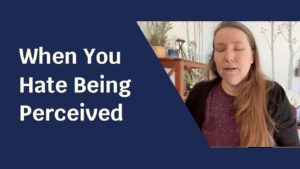
Here’s what might be going on if you hate being perceived, if it feels bad or awful, especially if you’re Autistic or otherwise different from the majority around you.
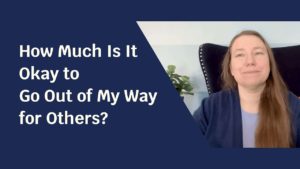
As you’re learning to establish healthier relationships and boundaries, the question comes up, “How much is it healthy to do things for others that use my own energy and effort?”

Here are a couple examples of internalized ableism, and a few thoughts exploring what ableism is, how it gets so ingrained, and what the way out may be.

There’s so much history and personal experience surrounding diagnoses, and they’re more complicated than “just labels.”
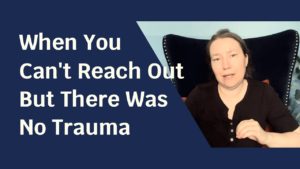
Some times you want friends, and you try to reach out, but question whether this person really wants to hear from you again. Here’s what might be happening.
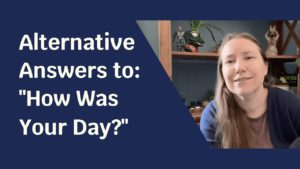
For some people, asking “How Was Your Day?” is a low stress way to start a conversation, so I’d like to talk about some low stress ways to respond.
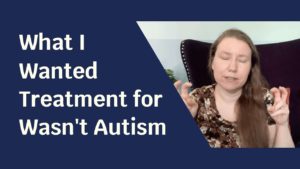
The topic of autism and treatment comes up a lot, so I wanted to address that today.

A few prompts to reflect on the previous year and to set intentions for the next.
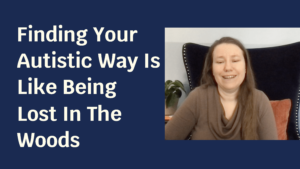
Trying to make your own version of an autistic-friendly life is a bit like finding your way through the deep dark woods.
We don’t spam or sell. Promise. Unsubscribe at any time.
Read our privacy policy here.
The information on this site is not intended or implied to be a substitute for psychotherapy, medical advice, diagnosis, or treatment.
© 2020-2024 Autism Chrysalis LLC.